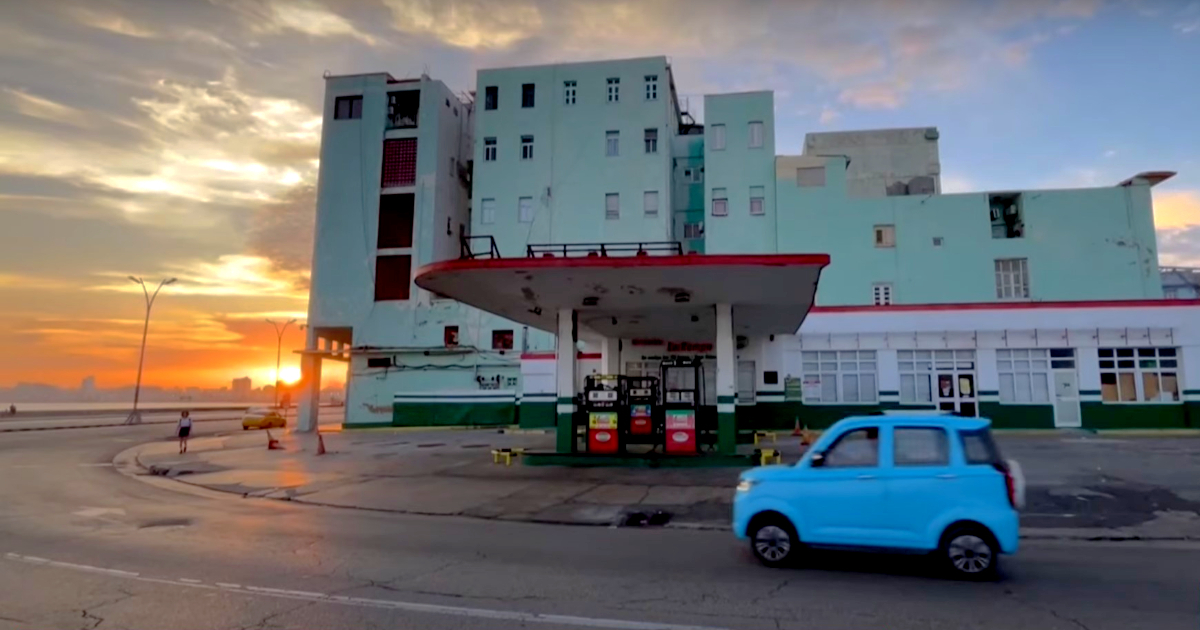
The rise in fuel prices implemented by the Cuban regime greatly worries the population, which is beginning to detect increases in the rates of private transporters, while drivers sufferlong lines in the fewgas stations supplied.
This was stated by several intervieweesFrance 24 in Havana, where a reporter from the French news channel went to see how it affects Cubans500 percent increase in fuel prices, decreed by the government of the so-called 'continuity' ofMiguel Diaz-Canel as part of the “package” of measures to “correct distortions” and achieve macroeconomic stability.
However, the unpopular measure is not perceived by the majority as necessary or effective to addressthe uncontrolled inflation that hits the pockets of Cubans. Much less as a necessary adjustment to “reboot the economy.” According to the aforementioned media, “Cubans fear they will not be able to resist this latest blow” while “they face an increasingly deepening economic crisis.”
“These queues have become the norm, they are tedious. We spent hours queuing to refuel only 40 liters of fuel,” he explained toFrance 24 a car owner. Although it has usually been common since the so-called “special period”, long lines at gas stations are now more distressing, taking into account the expense.
For another interviewee, “fuel prices should not have risen so much and so quickly, but we have no choice.” Only one of those questioned by the French agency was in favor of the price increase, expressing equal resignation.
Cuba is "importing most of its oil at world market prices and selling it much less. And that is costing the government, which has a huge fiscal deficit," the economist and enthusiast of the Cuban regime explained to the French news channel.Emily Morris.
According to the report, in the short term, the measure runs the risk of accelerating inflation ina country where the average salary (3,838 CUP) is just 12 dollars a month (and decreasing), “the end of difficulties seems to be very far away for Cubans, since malnutrition also continues to increase.”
This panorama was also seenMartí News, who asked several Cubans about the new measure and its impact on the daily life of the population. Many of them assured that the brutal increase in fuel prices is impacting the price of tickets for private transporters.
“I gave a tour early Friday and all theCUP closed. Already since Thursday, individuals said that we were going to raise prices," he commented.Rafael Alba Macías, a private transporter that operates in the El Curita park piquera, in the municipality of Centro Habana. "They are charging 100 pesos plus the fare. That is going to be chaos because everyone does not have the money to pay the fare at the current price," he added.
The unpopular measure has not been free of manifest hesitation on the part of the Cuban regime, whichalleged a “computer attack from abroad” to postpone it in February, andIt froze it again at the beginning of March due to the “price change process,” as reported by theCIMEX Corporation, belonging toGAESA, the business conglomerate that controls Cuba's dollarized economy, in the power of the military and the leadership of the regime.
“Fuel is going to go up in the black market, which is how most transporters are supplying themselves, and then imagine now how the price of the ticket is going to rise, in the capital the situation will become tense,” he said.Martí News the independent journalistEnrique Diaz. “It [transportation] was already bad, but now it's going to be chaotic,” he added.
In recent days, the prime minister,Manuel Marrero Cruz, stated that "the increase in prices to the population by private transporters is a distortion that must be corrected," and urgedeliminate "softness" in the confrontation with possible price increases.
Outside the capital there is also anxiety among the population.Adrian Chestnut, an independent communicator, told said media that in Sancti Spíritus they already reach 350 pesos per liter of gasoline on the black market. “In MSMEs, agricultural products will rise due to the rise in fuel.”
“In Santa Clara, anyone who does not travel on one or two buses that they can provide has to walk or pay 250 pesos per kilometer on a scooter, two kilometers 500 pesos,” said the self-employed person.Yoel Espinosa Medrano, resident in that city.
For his part, the activist from Pinar del RíoJosé Rolando Cáceres reported that at the bus terminal in his city “there are several paralyzed cars and few passengers because people do not have the money to pay the high costs of the tickets.”
Teresa Miranda Cespedes, an activist from the Corriente Martiana, reported from Guaro, in Holguín and stated that the price of the ticket to Mayarí had doubled in the last few hours. “Imagine how people are going to move around the places, right here the people who work in Mayari, there is no fuel for anything, not even for an ambulance, this is adrift, they no longer have a way to sustain this country” .
What do you think?
COMMENTFiled in: